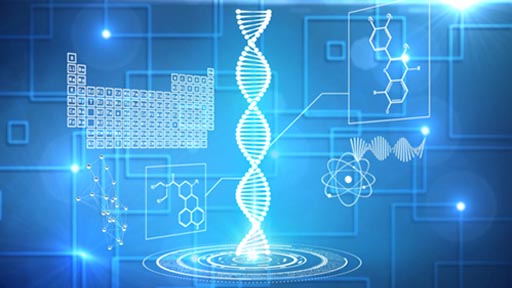Our Investment Protein Therapeutics Technology

By Brent MacDonald – Principal @ Rising Tide VC
George Church, Ph.D., renowned professor of genetics, Harvard Medical School, recently declared for decades, bacteria have been used as the workhorses of the biotech industry in the production of blockbuster therapeutics, and we can dramatically expand their utility by recoding their genomes.[1]
Protein therapeutics are often made in expensive systems because they have chemical bonds that do not form in microbes.[2] These bonds can also break in blood plasma, causing poor serum half-life. Or put another way, a medications biological half-life refers to how long it takes for half of the dose to be metabolized and eliminated from the bloodstream. GRO Biosciences is leveraging breakthrough technologies from computational protein design and synthetic biology to develop best-in-class protein therapeutics with enhanced properties. The Company has developed a platform to produce high-value protein therapeutics that address both problems of cost and half-life. By using microbes with an expanded genetic code, GRO Biosciences is developing therapeutic proteins with new stabilizing bonds to enable inexpensive microbial fermentation, fast production times, and long serum half-life. Its technologies can produce a broad set of high value biobetters that are considered the better, new-and-improved version of existing biologics which can be implemented in various biologics including monoclonal antibodies, insulin, interferon, Erythropoietin, and human growth hormone, each potentially a billion-dollar market.[3]

Why We Are Excited:
GRO Biosciences is addressing a large and unmet need in the market. Issues surrounding biologics manufacturing have hindered its adoption in more efficient microbial settings. In addition to lowering cost of manufacturing, increasing half-life will allow patients to take fewer doses of drugs, thus saving them money and lowering potential toxicity/liver issues.
The company believes it found a way to recode the genomes of bacterial strains in a way that could allow them to produce proteins that are more potent — and last longer — than traditional drugs and at commercial scale. In particular, the proteins are designed to have stronger chemical bonds that are less likely to break down in a patient’s blood. Professor Church states, GRO Biosciences’ technology could lead to the creation of a new universe of designer proteins with enhanced therapeutic properties at commercial scale. The spinout from the lab of Harvard Medical School aims to make protein drugs more versatile and effective by recoding the genomes of bacterial strains used to make these biological medicines.
GRO Biosciences wants to make a giant sector in the pharmaceutical industry even larger.
[1] Professor George Church is a pioneering synthetic biologist with foundational contributions to genome sequencing, DNA synthesis, and protein engineering. Professor Church led the development of the genomically recoded organisms (GROs) at the core of the GRO Biosciences platform. He is a co-founder of GRO Biosciences and leads the company's Scientific Advisory Board.
[2] Microbes are tiny living things that are found all around us and are too small to be seen by the naked eye. They live in water, soil, and in the air. The human body is home to millions of these microbes too, also called microorganisms.
[3] Biobetters are new molecular entities that are related to existing biologics by target or action, but they are deliberately altered to improve disposition, safety, efficacy, or manufacturing attributes.
